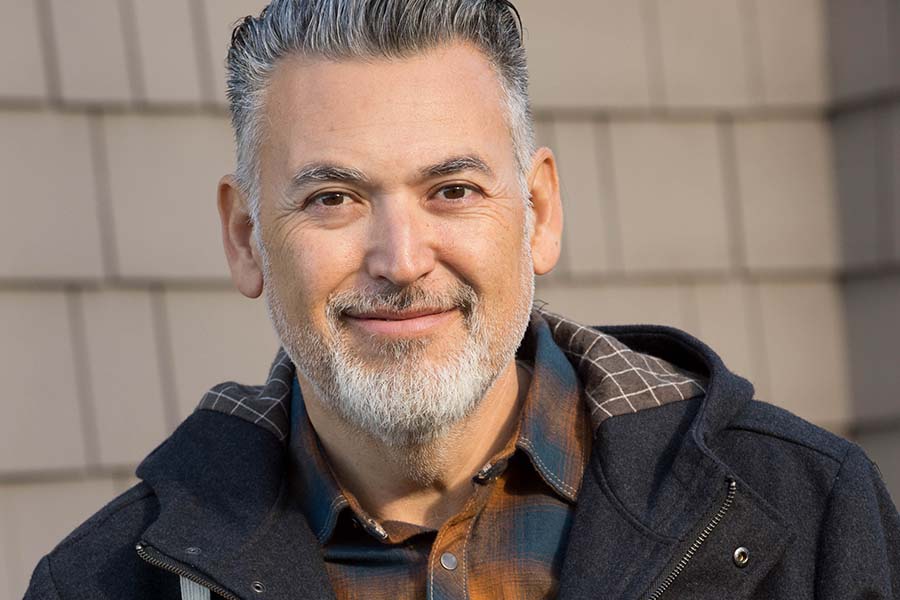Every other week, the editors of American Theatre curate a free-ranging discussion about the lively arts in our Offscript podcast.
This week, we discuss two playwrights of a certain age: Tony Kushner and David Mamet. Editors Rob Weinert-Kendt and Diep Tran are joined by freelance critic Nicole Serratore to discuss news that Tony Kushner is writing a new play about Donald Trump. Do we want to see it? Is there such a thing as too much politics in theatre? Then we discuss everyone’s favorite theatrical event: talkbacks. David Mamet hates ’em and wants them banned from his plays. We discuss if talkbacks work as tools of engagement and relay memorable talkback stories.
This week’s guest is Christopher Acebo, set designer and associate artistic director of Oregon Shakespeare Festival. He discusses how he found himself in a leadership position at one of the nation’s biggest theatres, and the differences between designing for new plays versus classics. Some highlights below:
On reviving Shakespeare:
The amount of work it takes to create new work in terms of giving playwrights resources, whether it’s readings or workshops or any kind of developmental work—I think what we realized is the devotion and care that was so valuable [with new work,] we were neglecting with the classical work. Because even if you do an Othello that you’ve never done with a group of artists, it’s like a new play, and we need the support to actually, not necessarily develop the play but certainly develop choices around the play and what the impact around those things are.
One strong aesthetic at OSF in terms of classical work is actually unfettering it from the bias we might have about it. Like, what is this Oklahoma! about actually? Can it actually go through a metamorphosis that isn’t the same Oklahoma! that you’ve always seen, or isn’t the same Richard II that you’ve seen? Part of that requires investigation of these plays. One of the things that we’re doing, and we’ve had great support from the Miller Foundation with our Shakespeare, is to actually workshop all of our Shakespeares as we do new work.
With great budgets come great responsibility:
I think there’s a huge responsibility when you have a company like the Oregon Shakespeare Festival, with the budget that it has and the impact that it has, to continue to be ambitious in how you’re looking at the work that you’re creating. And not resting on those laurels. I feel that—I don’t want to say the weight of it, because that feels like it’s holding you down in some ways. It’s actually lifting you up, to know that you have these resources and you can use them for making huge improvements.
Download the episode here. Subscribe via RSS, iTunes, Google Play, or Stitcher.
RECOMMENDATIONS:
Nicole loved the National Theatre production of Angels in America in London, though she’s tepid about the filmed version showing around the country via National Theatre Live. Still, she thinks you should take the opportunity to see that production in any form.
Diep was recently featured in Martha Steketee’s ongoing Critical I series, but that’s not why she recommends it! She likes it because it features an array of critical and journalistic voices speaking candidly about being their work. The most recent in the series is last week’s guest host, Helen Shaw.
And Rob thinks you should read Isaac Butler and Dan Kois’s article “Nathan Lane and the Rylance Rule: Why We Should Let Stage Actors Be Great Onstage,” at Slate, which makes the case that we shouldn’t pity stage actors for not having great film careers but should celebrate their theatrical achievements as ends in themselves.


